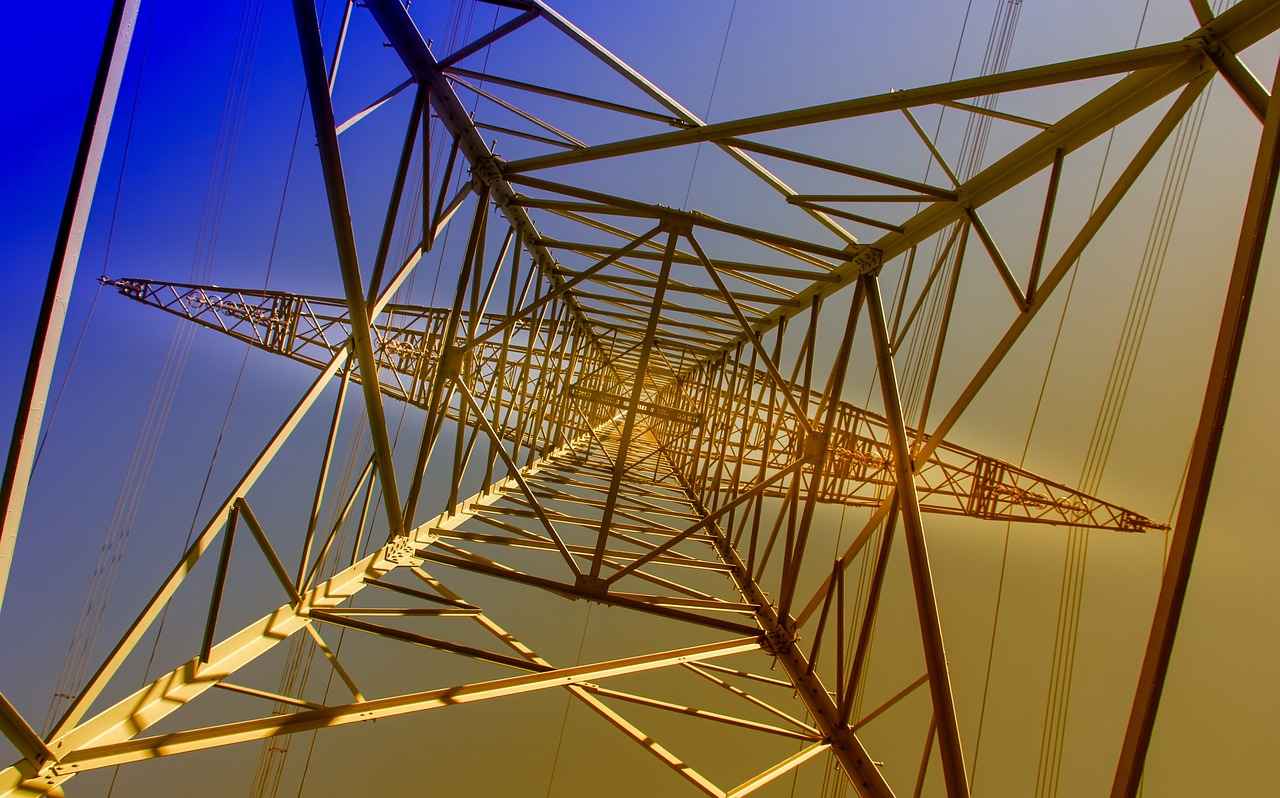Explore the most affordable electric bikes available in 2025, highlighting top choices, features, and tips to ensure you find the best deals on the market.
As electric bikes gain popularity, affordability becomes a key factor for many potential buyers. In 2025, several models stand out for their combination of quality and price. This article will guide you through the best options, essential features, and where to find the best bargains.
Understanding Electric Bikes
Electric bikes, or e-bikes, are an innovative blend of traditional cycling and electric power. They provide a convenient and eco-friendly mode of transportation, making them an attractive choice for commuters and leisure riders alike.
Benefits of Riding an Electric Bike
- Cost Savings: E-bikes can significantly lower transportation expenses compared to cars or public transport.
- Health Benefits: Riding an e-bike encourages physical activity, promoting better health.
- Environmental Impact: E-bikes produce fewer emissions, making them a greener choice.
Features to Look for in Budget E-Bikes
- Battery Life: A long-lasting battery is crucial for extended rides.
- Motor Power: Consider the motor’s wattage for better performance on hills.
- Weight: Lighter bikes are easier to maneuver and transport.
Top Affordable Electric Bike Brands in 2025
| Brand | Popular Models | Price Range |
|---|---|---|
| Brand A | Model X, Model Y | $800 – $1200 |
| Brand B | Model Z, Model W | $700 – $1000 |
Where to Buy Cheap Electric Bikes
- Online Retailers: Websites often provide competitive pricing and a wide selection.
- Local Bike Shops: These shops offer personalized service and expert advice.
Tips for Getting the Best Deals on E-Bikes
- Seasonal Sales: Look for discounts during holidays and end-of-season sales.
- Used Options: Consider purchasing refurbished or second-hand bikes for significant savings.
Conclusion: Making an Informed Purchase
Choosing the right electric bike involves careful consideration of features, brands, and purchasing options. By following the tips and insights provided, you can make an informed decision that aligns with your budget and needs.

Understanding Electric Bikes
Electric bikes, commonly referred to as e-bikes, represent a revolutionary blend of traditional cycling and modern electric power. These innovative vehicles are designed to make commuting easier, faster, and more enjoyable, while also promoting a greener mode of transportation. In this section, we will explore the mechanics of e-bikes, their various types, and the numerous advantages they offer to riders.
At their core, e-bikes are equipped with an electric motor that assists the rider’s pedaling efforts. This motor is powered by a rechargeable battery, which can vary in capacity and range. The typical components of an e-bike include:
- Electric Motor: Provides assistance to the rider, making it easier to tackle hills and long distances.
- Battery: Stores energy to power the motor, with varying capacities that affect range.
- Controller: Manages the power output from the battery to the motor based on the rider’s input.
- Pedal Assist System: Allows the rider to choose the level of assistance they want while pedaling.
The advantages of riding an electric bike are numerous and compelling. Firstly, e-bikes can significantly reduce commuting times, allowing riders to navigate through traffic more efficiently. Secondly, they offer health benefits by encouraging physical activity, as riders still need to pedal. Moreover, e-bikes produce lower emissions compared to cars, contributing to a cleaner environment.
In conclusion, understanding the mechanics of electric bikes not only highlights their innovative design but also underscores their potential as a sustainable transportation option. As e-bikes continue to gain popularity, they are likely to play a crucial role in shaping the future of urban mobility.

Benefits of Riding an Electric Bike
Riding an electric bike offers a multitude of benefits that enhance daily commuting and leisure activities. As urban areas continue to grow and environmental concerns rise, the popularity of electric bikes, or e-bikes, has surged. This section will delve into the key advantages of riding an electric bike, emphasizing aspects such as cost savings, health benefits, and a reduced environmental impact.
- Cost Savings: One of the most compelling reasons to choose an electric bike is the significant reduction in commuting costs. E-bikes are generally more affordable than cars and public transport in the long run. With rising fuel prices and maintenance costs associated with traditional vehicles, e-bikes provide a budget-friendly alternative.
- Health Benefits: Cycling is an excellent form of exercise, promoting cardiovascular health and improving overall fitness. Electric bikes encourage more people to ride, as they offer assistance on challenging terrains. Regular use of e-bikes can lead to enhanced physical well-being, making fitness more accessible.
- Environmental Impact: In a world increasingly focused on sustainability, e-bikes present a greener mode of transportation. They emit significantly fewer greenhouse gases than cars, contributing to cleaner air and a healthier planet. By choosing an electric bike, you are actively participating in reducing your carbon footprint.
Moreover, e-bikes offer convenience and flexibility. They allow riders to navigate through congested traffic and find parking more easily than traditional vehicles. With various models available, from foldable options to those designed for rugged terrains, there is an electric bike to suit every lifestyle.
In summary, the benefits of riding an electric bike extend beyond cost savings and health improvements. They play a crucial role in promoting sustainable living and enhancing urban mobility. As more people become aware of these advantages, the adoption of electric bikes is likely to continue growing.
Cost Savings
Electric bikes, often referred to as e-bikes, present a remarkable opportunity for cost savings when compared to traditional cars and public transportation. The long-term financial benefits of owning an e-bike can be substantial, making them an appealing choice for many consumers.
One of the primary ways e-bikes reduce transportation expenses is through lower fuel costs. Unlike gasoline-powered vehicles, e-bikes run on electricity, which is significantly cheaper than fuel. The average cost to charge an e-bike is just a few cents per ride, leading to considerable savings over time.
| Expense Type | Traditional Vehicle | Electric Bike |
|---|---|---|
| Fuel Cost (Monthly) | $150 | $10 |
| Maintenance Cost (Annual) | $1,200 | $300 |
| Insurance Cost (Annual) | $1,000 | $200 |
In addition to fuel savings, e-bikes require less maintenance than cars. With fewer moving parts, the likelihood of costly repairs is reduced. Regular maintenance for e-bikes typically involves checking the brakes, tires, and battery, which is much less expensive than the routine maintenance required for a car.
Furthermore, e-bike owners often enjoy lower insurance premiums. Many insurance companies offer reduced rates for e-bikes, recognizing their lower risk profile compared to cars. In some regions, e-bikes may not even require registration, further decreasing the overall cost of ownership.
Considering these factors, it’s clear that the long-term savings associated with e-bike ownership can be substantial. By opting for an electric bike, individuals not only save money but also contribute to a more sustainable mode of transportation.
Fuel and Maintenance Costs
Owning an electric bike (e-bike) presents a remarkable opportunity to significantly reduce fuel costs. Unlike traditional vehicles that rely on gasoline or diesel, e-bikes are powered by electricity, which is generally much cheaper. This shift in energy source not only benefits your wallet but also contributes to a more sustainable environment.
To illustrate the cost-effectiveness of e-bikes, consider the following:
- The average cost of electricity per kilowatt-hour is substantially lower than the average price of gasoline.
- On average, e-bikes consume around 0.3 to 0.5 kilowatt-hours of electricity for a full charge, translating to approximately 1 to 2 cents per mile in operating costs.
- In contrast, a conventional vehicle might cost over 10 to 15 cents per mile, depending on fuel prices.
In addition to fuel savings, e-bikes also boast lower maintenance costs. Traditional vehicles require regular oil changes, complex engine repairs, and often expensive parts replacements. E-bikes, however, have fewer moving parts and simpler mechanics, leading to:
- Reduced maintenance frequency and costs, as they typically require less servicing.
- Lower replacement costs for components like brakes and tires.
- Minimal wear and tear, given that e-bikes are less likely to be involved in accidents compared to cars.
Moreover, e-bikes generally do not require expensive emissions tests or inspections, further contributing to their affordability. In summary, the combination of lower fuel and maintenance costs makes owning an electric bike a financially savvy choice for many individuals.
Insurance and Registration Savings
When it comes to owning an electric bike, one of the most appealing aspects is the significant savings on insurance and registration fees compared to traditional vehicles. This section will explore how these financial benefits contribute to the overall affordability of e-bike ownership.
Typically, e-bikes are classified differently than standard cars, which means they often fall under a lower insurance category. Many insurance companies offer plans specifically designed for e-bikes that are not only cheaper but also tailored to the unique needs of e-bike riders. For example, coverage can include theft protection, liability, and even damage coverage at a fraction of the cost of insuring a car.
In addition to lower insurance premiums, e-bikes generally incur minimal registration fees. In many regions, electric bikes do not require registration at all, while others may have a nominal fee. This is a stark contrast to the high costs associated with registering a car, which can include taxes, inspection fees, and more. For budget-conscious consumers, these savings can add up significantly over time.
Moreover, the affordability of e-bikes is enhanced by their low maintenance costs. With fewer moving parts than a car, e-bikes require less frequent repairs, which means lower overall ownership costs. This is particularly beneficial for those looking to minimize their transportation expenses.
In conclusion, the combination of reduced insurance premiums, minimal registration fees, and low maintenance costs makes electric bikes an affordable transportation option. For anyone considering switching to an e-bike, these financial advantages are a compelling reason to make the leap.
Health Benefits
Cycling is not just a mode of transport; it is a holistic approach to health that can be easily enhanced with the use of electric bikes, or e-bikes. These innovative machines have revolutionized how we perceive cycling, making it accessible to a broader audience. In this section, we will explore the associated with regular e-bike use, emphasizing how they can contribute to a healthier lifestyle.
- Cardiovascular Health: Riding an e-bike can significantly improve your cardiovascular fitness. The gentle pedaling combined with electric assistance allows for longer rides, which can strengthen the heart and improve overall circulation.
- Weight Management: Regular cycling helps burn calories, making it an effective way to manage weight. E-bikes encourage more frequent rides, even for those who may be intimidated by traditional cycling.
- Muscle Strengthening: Cycling engages various muscle groups, particularly in the legs. E-bikes provide a low-impact workout, which is easier on the joints while still promoting muscle tone and strength.
- Mental Well-being: The act of cycling can boost mood and reduce stress levels. E-bikes allow riders to enjoy the outdoors, which can enhance mental health through exposure to nature and physical activity.
- Accessibility: E-bikes make cycling more accessible for individuals of all ages and fitness levels. Those with mobility issues or who are recovering from injuries can still enjoy the benefits of cycling without overexerting themselves.
In conclusion, the of regular e-bike use are extensive. From enhancing cardiovascular health to promoting mental well-being, e-bikes serve as a fantastic tool for improving overall fitness. By encouraging more people to cycle, e-bikes not only contribute to individual health but also foster a more active and environmentally friendly community.

Features to Look for in Budget E-Bikes
When searching for the cheapest electric bikes, it is essential to prioritize specific features to ensure you get the best value for your money. Understanding these features can significantly enhance your riding experience while keeping your budget intact. Below are the key specifications and functionalities that should be considered when looking for budget-friendly electric bikes.
- Battery Life: The battery is one of the most critical components of an electric bike. A longer battery life means you can ride further without needing frequent recharges. Look for models with lithium-ion batteries, as they are known for their longevity and efficiency.
- Motor Power: The power of the motor directly affects the bike’s performance, especially in terms of speed and the ability to climb hills. Typically, a motor with at least 250 watts is recommended for a smooth ride on varied terrains.
- Weight: The overall weight of the bike can impact your riding experience. Lighter bikes are easier to maneuver and carry, especially if you need to transport them. Consider the weight of both the bike and the battery.
- Frame Material: The material of the bike frame plays a significant role in durability and weight. Aluminum frames are a popular choice for budget e-bikes due to their balance of strength and lightness.
- Braking System: Safety should always be a priority. Look for bikes equipped with reliable braking systems, such as hydraulic disc brakes, which offer superior stopping power in various weather conditions.
- Warranty and Support: A good warranty can provide peace of mind regarding your purchase. Check if the manufacturer offers a warranty on the battery and motor, as these are the most critical components of an electric bike.
By focusing on these essential features, you can make a more informed decision when purchasing a budget electric bike. This will not only ensure a satisfying riding experience but also maximize your investment.
Battery Life
is a crucial element in determining the overall performance of an electric bike. When considering a budget-friendly e-bike, understanding how to assess battery capacity and longevity is essential for making an informed decision. This section will provide insights on evaluating battery specifications to ensure you select the best model for your needs.
First, it’s important to know that battery capacity is measured in watt-hours (Wh). A higher watt-hour rating typically indicates a longer range, allowing you to travel greater distances on a single charge. For budget e-bikes, look for models with at least 400 Wh to ensure a decent range. However, if you plan on using your e-bike for longer commutes, consider models with a capacity of 500 Wh or more.
Next, assess the battery type. Most electric bikes use lithium-ion batteries due to their lightweight and efficient energy storage. When comparing models, ensure the battery is from a reputable manufacturer, as this can affect both performance and longevity. Additionally, inquire about the battery’s lifespan, typically measured in charge cycles. A good quality e-bike battery can last between 500 to 1,000 charge cycles, which translates to several years of use.
Another factor to consider is the removability of the battery. E-bikes with removable batteries allow for convenient charging and replacement. This feature can enhance the longevity of the battery, as it can be charged indoors, away from extreme weather conditions, which can degrade battery performance over time.
Lastly, check for any warranty or service options provided by the manufacturer. A robust warranty can offer peace of mind, ensuring that you are covered in case of battery failure. By taking these factors into account, you can make a well-informed decision when selecting a budget-friendly electric bike that meets your needs.
Motor Power
is a crucial factor to consider when selecting an affordable electric bike, as it directly influences both the bike’s speed and its ability to tackle steep inclines. In this section, we will explore the various motor options available in budget-friendly electric bikes, ensuring you make an informed decision that suits your riding style and needs.
Electric bike motors are typically classified into two main types: hub motors and mid-drive motors. Each type has its own set of advantages and disadvantages that can significantly affect your riding experience.
- Hub Motors: These motors are located in the wheel hub, either in the front or rear wheel. They are generally more affordable and easier to maintain. However, they may struggle with steep hills and can make the bike feel heavier.
- Mid-Drive Motors: Positioned at the bike’s crank, mid-drive motors provide better weight distribution and are more efficient for climbing hills. They tend to offer a more natural riding experience, as they utilize the bike’s gears. However, they can be pricier and require more maintenance.
When evaluating motor power, it is essential to consider the wattage. Motors typically range from 250W to 750W. A 250W motor is suitable for flat terrains and casual rides, while a 500W or 750W motor is better for those who plan to ride on hilly terrains or need a faster commute.
Additionally, understanding the torque produced by the motor is vital, especially for hill climbing. Torque is measured in Newton-meters (Nm), and a higher torque rating means better performance on inclines. Most budget e-bikes provide torque ratings between 30 Nm to 80 Nm, with higher values being advantageous for steep climbs.
In conclusion, selecting the right motor power is essential for enhancing your riding experience. By understanding the differences between hub and mid-drive motors, as well as considering wattage and torque, you can choose an affordable electric bike that meets your specific needs and preferences.

Top Affordable Electric Bike Brands in 2025
As the demand for electric bikes continues to rise, several brands have emerged as leaders in the budget-friendly segment, offering quality products that cater to cost-conscious consumers. This section will explore some of the top manufacturers in the market, highlighting their unique offerings and what makes them stand out.
- Brand A: Known for its reliability and exceptional value, Brand A offers a range of models that cater to various riding styles. Popular models include the EcoRide 3000 and CityCruiser 250, both praised for their robust construction and long-lasting battery life. Prices typically range from $800 to $1,200, making them an excellent choice for budget-minded buyers.
- Brand B: This brand has gained a reputation for its innovative designs and affordable pricing. The TrailBlazer 500 and UrbanCommuter 400 are two of their standout models, featuring powerful motors and impressive range. With prices around $700 to $1,000, they offer great performance without breaking the bank.
- Brand C: A newer player in the market, Brand C focuses on sustainability while maintaining affordability. Their models, such as the GreenCycle 600, are equipped with eco-friendly materials and advanced technology. Prices for these bikes start at $600, making them an attractive option for environmentally conscious riders.
When considering the purchase of a budget electric bike, it’s essential to evaluate the brand’s reputation, warranty options, and customer service. Each of these brands has garnered positive reviews for their commitment to quality and customer satisfaction, ensuring that you can ride confidently.
In conclusion, exploring the offerings of these top affordable electric bike brands in 2025 will help you make an informed decision that aligns with your budget and riding needs.
Brand A: Overview and Models
Brand A has established itself as a prominent player in the electric bike market, renowned for its combination of reliability and affordability. This section will provide a comprehensive overview of their popular models and pricing, catering to the needs of budget-conscious consumers.
Brand A offers a diverse range of e-bikes, each designed to meet different riding preferences and requirements. Below is a summary of some of their most popular models:
| Model | Features | Price |
|---|---|---|
| Model X1 | 250W motor, 36V battery, 20-mile range | $799 |
| Model Y2 | 350W motor, 48V battery, 30-mile range | $999 |
| Model Z3 | 500W motor, 48V battery, 40-mile range | $1,299 |
Each model is engineered with quality components and comes with a warranty, ensuring peace of mind for buyers. The Model X1 is perfect for city commuters, while the Model Y2 offers a balance of power and range for weekend adventures. For those seeking a more robust option, the Model Z3 delivers exceptional performance on varied terrains.
In terms of pricing, Brand A remains competitive, making it easier for consumers to find a suitable e-bike without breaking the bank. With options starting at just $799, there is something for everyone.
Overall, Brand A’s commitment to quality and affordability makes it a top choice for individuals looking to invest in an electric bike. Whether you’re commuting to work or exploring new trails, their models provide reliable performance and excellent value.
Brand B: Overview and Models
Brand B has made a significant mark in the electric bike market by offering a diverse range of budget-friendly models. These bikes are designed to cater to a wide audience, particularly those who are cost-conscious but still want a reliable and efficient mode of transportation. In this section, we will explore the various models offered by Brand B and highlight their key features that make them an excellent choice for consumers.
| Model | Price | Key Features |
|---|---|---|
| Model X1 | $799 | 250W motor, 30-mile range, lightweight aluminum frame |
| Model Y2 | $899 | 350W motor, 40-mile range, integrated LED lights |
| Model Z3 | $999 | 500W motor, 50-mile range, advanced suspension system |
The Model X1 is perfect for urban commuting, featuring a 250W motor that provides a smooth ride while maintaining an impressive 30-mile range on a single charge. Its lightweight aluminum frame ensures easy maneuverability, making it an ideal choice for city dwellers.
For those looking for a bit more power, the Model Y2 comes equipped with a 350W motor and a 40-mile range. This model also includes integrated LED lights for enhanced visibility during night rides, making it a safe option for evening commuters.
Finally, the Model Z3 stands out with its robust 500W motor, offering a remarkable 50-mile range. This model is designed for those who don’t just want to commute but also enjoy longer rides. Its advanced suspension system provides comfort on rough terrains, making it a versatile choice for various riding conditions.
In conclusion, Brand B’s electric bikes offer a combination of affordability, performance, and essential features that cater to a wide range of riders. With options like the X1, Y2, and Z3, consumers can find a model that fits their budget and riding needs without compromising on quality.

Where to Buy Cheap Electric Bikes
Finding the right place to purchase an electric bike can lead to substantial savings. With the increasing popularity of e-bikes, various buying options have emerged, both online and in-store. This section will explore these avenues, helping you make an informed decision.
Online Retailers
Shopping for electric bikes online offers several advantages, including:
- Wider Selection: Online platforms provide access to a vast range of models and brands, often not available in local stores.
- Competitive Pricing: Many online retailers offer discounts and promotions, making it easier to find bargain deals.
- Customer Reviews: Reading reviews from other buyers can help you gauge the quality and performance of specific models.
Some popular online retailers include:
- Amazon
- Walmart
- Specialized e-bike websites
Local Bike Shops
While online shopping has its perks, local bike shops offer unique benefits:
- Personalized Service: Staff at local shops can provide tailored recommendations based on your needs and preferences.
- Test Rides: You can physically test the bike before purchasing, ensuring it fits your comfort and riding style.
- Expert Advice: Local retailers often have knowledgeable staff who can answer technical questions and offer maintenance tips.
Conclusion
Whether you choose to shop online or visit a local bike shop, understanding your options can lead to significant savings on your electric bike purchase. Each avenue has its advantages, and by considering your personal preferences and budget, you can find the perfect e-bike that meets your needs.
Online Retailers
Online shopping has transformed the way consumers purchase electric bikes, offering a plethora of options at competitive prices. This section will delve into some of the most popular online retailers where you can find affordable electric bikes, ensuring you have access to the best deals available in 2025.
One of the primary advantages of shopping online is the wider selection of electric bikes. Unlike local stores, online retailers often carry numerous brands and models, allowing you to compare features, prices, and customer reviews all in one place. Here are some of the top online retailers to consider:
| Retailer | Notable Features | Average Price Range |
|---|---|---|
| Amazon | Extensive variety, user reviews, fast shipping | $500 – $2,500 |
| Walmart | Competitive pricing, local pickup options | $400 – $1,800 |
| Specialized | High-quality e-bikes, expert advice | $1,000 – $4,000 |
| Rad Power Bikes | Affordable options, built-in accessories | $1,200 – $1,800 |
In addition to these retailers, many brands have their own online stores, providing exclusive discounts and promotions. Websites like eBay and Craigslist can also be valuable for finding used or refurbished electric bikes at significantly reduced prices. However, it is essential to exercise caution and verify the condition of any second-hand bike before purchasing.
When shopping online, always check for customer reviews and ratings to ensure you are making a well-informed decision. Many retailers also offer return policies and warranties, which can provide peace of mind when investing in an electric bike.
In conclusion, online retailers provide a convenient and cost-effective way to purchase electric bikes. With a bit of research and comparison, you can find the perfect e-bike that fits your budget and lifestyle.
Local Bike Shops
play a crucial role in the cycling community, offering more than just a point of sale. When considering where to purchase your next bicycle, it’s essential to understand the unique advantages that local retailers provide. In this section, we will explore the benefits of shopping at local bike shops and what you can expect from your experience.
- Personalized Service: One of the most significant advantages of local bike shops is the personalized service they offer. Staff members are often passionate cyclists themselves, providing tailored recommendations based on your specific needs, preferences, and riding style.
- Expert Advice: Local retailers are typically staffed by knowledgeable professionals who can offer expert advice on everything from bike selection to maintenance. This expertise is invaluable for both beginners and experienced riders looking to upgrade their gear.
- Test Rides: Many local shops allow you to test ride bikes before purchasing, ensuring that you find the perfect fit. This hands-on experience is something online retailers cannot provide.
- Community Support: Shopping locally helps support the community and fosters relationships with fellow cyclists. Many bike shops host group rides, workshops, and events that enhance the overall cycling experience.
- Maintenance and Repairs: Local bike shops often provide ongoing support, including maintenance and repair services. This means you have a reliable place to turn for any issues that may arise after your purchase.
When visiting a local bike shop, expect a welcoming atmosphere where staff are eager to help you find the right bicycle. You can also anticipate a wide range of accessories and gear tailored to your cycling needs. Overall, choosing to shop at local bike shops not only enhances your purchasing experience but also contributes to the vitality of the cycling community.

Tips for Getting the Best Deals on E-Bikes
When it comes to purchasing an electric bike, being strategic can lead to significant savings. Here are some practical tips designed to help consumers find the best deals and maximize their budget:
- Research and Compare Prices: Before making a purchase, take the time to compare prices across various retailers. Websites like Example.com can help you find competitive pricing on electric bikes.
- Take Advantage of Seasonal Sales: Many retailers offer discounts during specific seasons, such as Black Friday, end-of-summer sales, and holiday promotions. Timing your purchase can lead to substantial savings.
- Look for Coupons and Promo Codes: Before finalizing your purchase, search for online coupons or promotional codes. Websites like Coupons.com often have deals that can further reduce costs.
- Consider Used or Refurbished E-Bikes: Purchasing a used or refurbished electric bike can save you a considerable amount. Check local classifieds, online marketplaces, and bike shops for quality pre-owned options.
- Join E-Bike Communities: Engaging with online forums and social media groups dedicated to electric bikes can provide insights into current deals, recommendations, and tips from seasoned riders.
- Test Ride Before You Buy: If possible, visit local bike shops to test ride different models. This not only ensures you find the right fit but may also lead to exclusive in-store discounts.
- Ask About Financing Options: Some retailers offer financing plans that can make purchasing an electric bike more manageable. Inquire about low-interest rates or payment plans that suit your budget.
By utilizing these strategies, consumers can enhance their chances of finding the best deals on electric bikes, ensuring they make a smart and cost-effective purchase.
Seasonal Sales and Discounts
Timing your purchase can lead to significant savings when it comes to buying an electric bike. Understanding the seasonal trends and sales can help you secure the best deals. This section will detail the optimal times of year to shop for e-bikes, ensuring you get the most value for your investment.
Typically, the best times to buy an electric bike align with major sales events and the cycling season. Here are some key periods to consider:
- End of Season Sales: As summer winds down, many retailers offer discounts to clear out inventory. This is particularly true in late August and September when new models are introduced.
- Black Friday and Cyber Monday: These shopping holidays in late November present excellent opportunities for discounts on electric bikes. Many online and brick-and-mortar stores offer substantial markdowns during this time.
- Spring Sales: Early spring, particularly in March and April, is another good time to buy. Retailers often promote new models, leading to discounts on last year’s stock.
- Holiday Promotions: Major holidays like Memorial Day, Labor Day, and Independence Day often come with sales on electric bikes. Keep an eye out for special promotions during these times.
Additionally, consider checking for manufacturer promotions or rebates, which can further reduce the cost of your e-bike. Signing up for newsletters from your favorite brands or retailers can keep you informed about upcoming sales and exclusive offers.
In conclusion, planning your purchase around these key sales periods can lead to significant savings. By being strategic and informed, you can find the perfect electric bike at a price that fits your budget.
Used and Refurbished Options
Exploring used or refurbished electric bikes can lead to substantial savings without compromising on quality. In this section, we will discuss how to safely purchase second-hand e-bikes, ensuring you make an informed decision while maximizing your budget.
- Research the Market: Before diving into the purchase, it is crucial to understand the current market prices for various models. Websites like eBay and Craigslist can provide insights into average prices.
- Inspect the Bike Thoroughly: Always inspect a used e-bike in person. Look for signs of wear and tear, check the battery condition, and ensure the motor functions properly. If possible, take it for a test ride.
- Ask for Maintenance Records: A well-maintained e-bike is likely to perform better and last longer. Request any service history or maintenance records from the seller.
- Consider Refurbished Options: Refurbished e-bikes often come with warranties and are tested for quality. These bikes are typically restored to like-new condition, making them a safe choice.
- Verify the Seller: Whether purchasing from an individual or a store, check the seller’s reputation. Look for reviews or ratings to ensure reliability.
Additionally, consider the following tips:
- Negotiate the Price: Don’t hesitate to negotiate the price. Many sellers expect some haggling and may be willing to lower their asking price.
- Check for Local Laws: Ensure that the e-bike complies with local regulations regarding electric bikes. Some areas have specific laws that may affect your purchase.
- Look for Warranty Options: Some refurbished bikes come with a warranty. This can provide peace of mind and protection against potential issues.
By following these guidelines, you can confidently explore the used and refurbished electric bike market, making a purchase that suits your needs and budget.

Conclusion: Making an Informed Purchase
When it comes to choosing the right electric bike, making an informed decision is crucial for budget-conscious consumers. With the variety of options available in 2025, it is essential to consider several factors to ensure you get the best value for your investment.
First and foremost, understanding the features that matter most is key. Look for bikes with a reliable battery life and sufficient motor power to meet your commuting needs. A good battery will not only enhance your riding experience but also reduce the frequency of replacements, saving you money in the long run.
Next, consider the brand reputation. Some brands are known for their durability and customer service, which can be invaluable when it comes to maintenance and support. Researching reviews and consumer feedback can provide insights into which brands consistently deliver quality products.
Additionally, explore various buying options. Whether you choose to shop online or at a local bike shop, each option has its advantages. Online retailers often provide competitive prices and a wider selection, while local shops can offer personalized service and expert advice.
Lastly, don’t overlook the potential for seasonal sales and discounts. Timing your purchase can lead to significant savings, especially during major sales events or when new models are released. Furthermore, considering used or refurbished bikes can provide a budget-friendly alternative without compromising on quality.
In conclusion, taking the time to evaluate these factors will empower you to make a well-informed decision when purchasing an electric bike. By focusing on essential features, reputable brands, and smart buying strategies, you can find an affordable e-bike that fits your lifestyle and budget.
Frequently Asked Questions
- What is an electric bike?
An electric bike, or e-bike, is a bicycle that comes with an integrated electric motor to assist with pedaling. This makes cycling easier, especially on hills or during long rides, combining the benefits of traditional cycling with electric power.
- How do I choose the best budget electric bike?
When selecting a budget e-bike, focus on key features such as battery life, motor power, and overall build quality. Consider what you’ll primarily use it for—commuting, leisure, or fitness—to find the right model that suits your needs without breaking the bank.
- Are there significant savings with electric bikes compared to cars?
Absolutely! Electric bikes can drastically reduce your transportation costs, including fuel, maintenance, and insurance. Over time, these savings can add up, making e-bikes a cost-effective alternative to cars or public transport.
- Where can I find the cheapest electric bikes?
You can find great deals on electric bikes both online and in local bike shops. Online retailers often have a wider selection and competitive prices, while local shops provide personalized service and expert advice, which can be invaluable.
- Are used electric bikes a good option?
Yes! Purchasing used or refurbished electric bikes can lead to significant savings. Just ensure you check the bike’s condition and battery health before making a purchase to avoid any unpleasant surprises.















